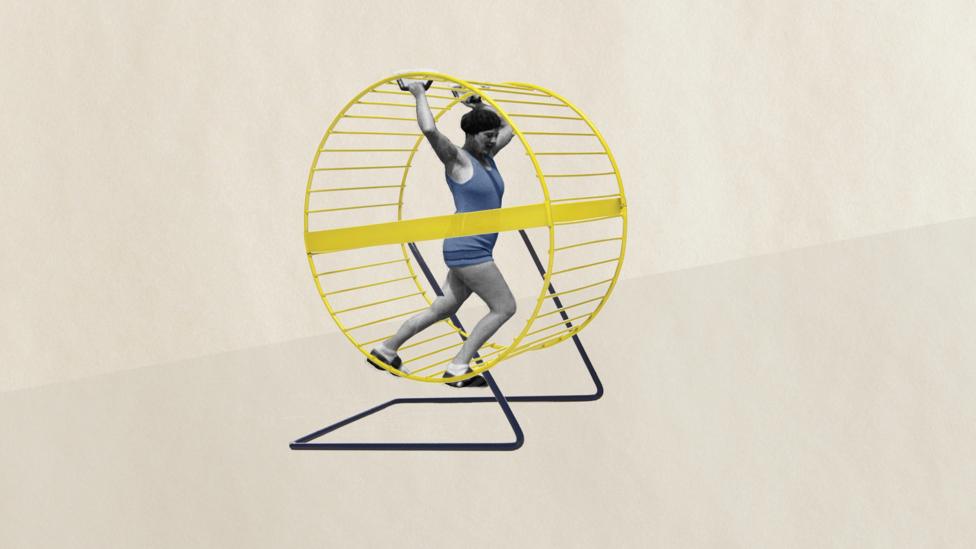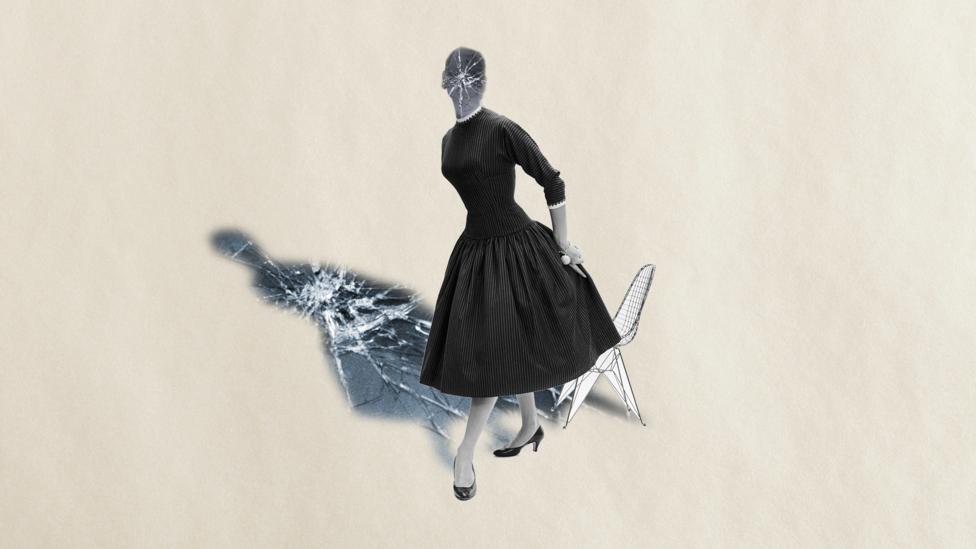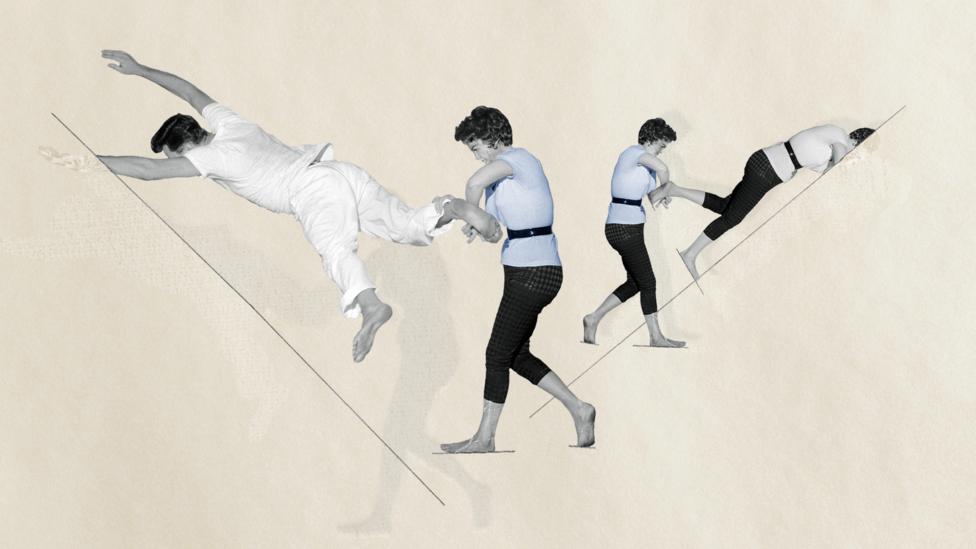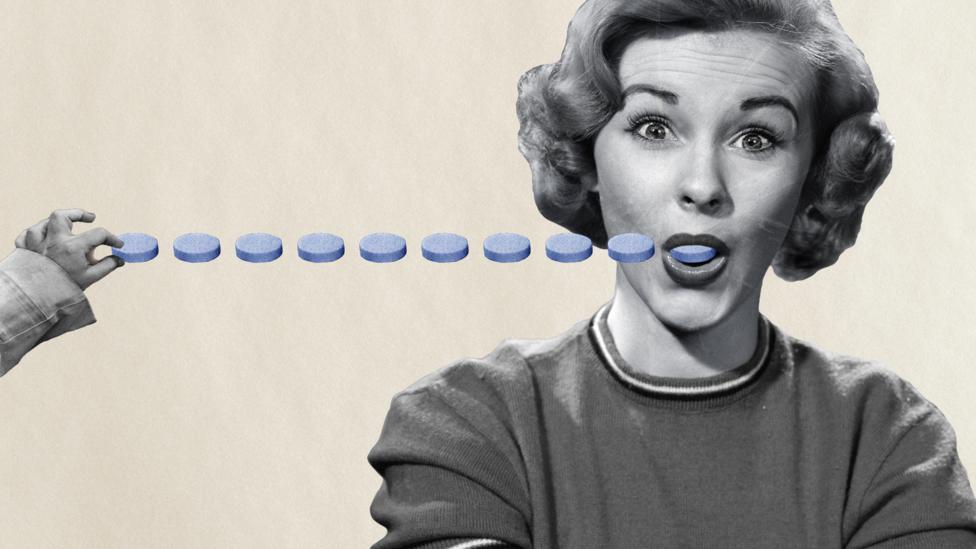As a 30-year-old, Caroline Henaghan was busy. She was working for the UK’s Home Office while training to be a barrister and wondered if the frequent stress and anxiety she was experiencing were just products of overwork and getting older. “It felt like getting on a hamster wheel and not being able to get off,” she recalls.
Eventually, work got to be too much and she took an uncharacteristic short leave of absence. But Henaghan’s mood didn’t improve. She woke up each morning with enormous anxiety, leading to social withdrawal. “I would essentially do a disappearing act so I wouldn’t have to be around people,” she says. She was never suicidal, she stresses. But she did fantasize about leaving things behind. “It would be a case of if I could go to sleep and never wake up. That’s how dramatic it was for me.”
Though the psychiatric symptoms were the strongest, there were odd physical patterns as well. Henaghan would get bloated and fatigued, sleep excessively, and – as a keen gardener – shop erratically, for instance buying plants that were out of season. Her family noticed her increasingly strange behavior as well. She thought it might be bipolar disorder, given the cyclical nature of her ups and downs. For instance, she might spend two weeks each month putting right the damage from the previous week: the fights with loved ones, the untidy home, the slippages at work. Eventually, after what she calls a “mini-breakdown”, she realized that the recurrence of all these symptoms was linked to her menstrual cycle.
Her doctors dismissed her concerns. She visited five GPs, all male after the first one commented: “Oh, it’s just PMS. My wife gets that.”
But it wasn’t “just” premenstrual syndrome (PMS). Henaghan had to do what many women overlooked by the medical establishment do: her own research. Through her online study, she learned about a condition called premenstrual dysphoric disorder (PMDD).
You might also like:
• How the menstrual cycle changes women’s brains
• The effect of childbirth no-one talks about
• The sexist myths that won’t die
PMDD is much more intense than its better-known relative, PMS, with physical symptoms including fatigue and migraines, while the psychological symptoms can include the severe mood swings and anxiety that plagued Henaghan. The disorder can be so debilitating that 15% of those with PMDD have attempted suicide, and some young women affected are opting for hysterectomies.

The cyclical nature of PMDD is what often distinguishes it from other mental health conditions that can trigger similar symptoms (Getty Images/Javier Hirschfeld)
Henaghan is one of them. When she was ultimately diagnosed with PMDD by a specialist, unusual experiences she’d been having since puberty finally made sense. Henaghan tried estrogen therapy (which didn’t help) and high doses of progesterone (which helped a little). After being hospitalized for her erratic behavior, she approached her doctor about having a total abdominal hysterectomy and bilateral salpingo-oophorectomy (removal of the ovaries and fallopian tubes).
“He was very open and willing to acknowledge my own experiences,” she says. So in 2015, at the age of 36, she underwent the surgery, effectively inducing early menopause.
PMDD is a cellular genetic malfunction in response to hormone changes, and it should be treated as the serious medical condition it is – Tory Eisenlohr-Moul
The menstrual cycle can affect the brain in both positive and negative ways as women’s hormones fluctuate. It can make them more anxious and irritable at certain points but also improve their spatial awareness and communication skills. Various studies have indicated that PMS, the symptoms some women get in a week or two before their period, is at least partially influenced by genetics and can be passed on from mothers to their daughters. And research published in 2017 also found unusual gene expression in people with PMDD that makes them unusually sensitive to estrogen and progesterone.
“PMDD is ultimately a cellular genetic malfunction in response to hormone changes, and it should be treated as the serious medical condition that it is,” says Tory Eisenlohr-Moul, who studies women’s mental health at the University of Illinois at Chicago.
But a lack of consensus and knowledge around symptoms, whether they’re biologically, psychologically or culturally rooted, leads to PMDD being commonly misdiagnosed. The disorder was only included in the Diagnostic and Statistical Manual of Mental Disorders (DSM) in 2013, after plenty of debate.
PMDD is so murky partly because women’s health is understudied. Some skeptics are nervous about attaching another label to women that presents them as irrational. There’s also been criticism of the links between DSM subcommittee members and pharmaceutical companies amid concerns that PMS/PMDD will be pathologized and over-medicalised for profit.

The symptoms of PMDD, which can be both mental and physical, can be extreme enough to lead some women to the verge of a breakdown (Credit: Getty Images/Javier Hirschfeld)
Together this has meant that PMDD has been largely overlooked, despite the severe effect it can have on those who suffer from it. And a surprising number of women are affected. While estimates vary, there are suggestions that PMDD affects 3-8% of women of reproductive age – millions of women worldwide.
Menstrual issues have led to acquittals in shoplifting cases dating back to the 19th Century along with cases of arson, forgery, child abuse and even murder
But there is now a growing recognition of PMDD, and the mixed attitudes surrounding it, in popular culture. Megan Abbott’s latest novel Give Me Your Hand centers on a group of researchers convinced not only that PMDD exists, but that uncovering its mechanisms will make them famous. As the narrator explains of PMDD:
“At its worst, it’s led women to self-destructive acts. Or destructive ones. In the lab, we’ve all heard the horror stories: Women in its grip hitting their boyfriends over the head with frying pans, rear-ending their children’s teachers’ cars in the school parking lot. Road rage, baby shaking, worse.”
This description of PMDD is a reflection of some real-life cases where extreme premenstrual issues have been used in defenses in the criminal courts. Menstrual issues have led to acquittals in shoplifting cases dating back to the 19th Century. They’ve also been raised in cases of arson, forgery, child abuse and, in the most extreme cases, murder.
Care is needed not to overstate the possible aggression associated with premenstrual issues – one lawyer estimated that if all violent crimes perpetrated by women in the US could be attributed to PMS, it would still mean that no more than 0.1% of people with PMS commit violent crimes. Clearly, even that figure is an unlikely one and Eisenlohr-Moul emphasizes that “the vast majority of women have no cyclical changes in emotions, thinking or behavior”.
But for a small minority of women who have extreme PMDD symptoms, which may include impulsivity, aggression and antisocial activities, it’s possible it can lead to some out-of-character behavior.

Finding a doctor who will recognize PMDD can be something of a lottery as there are some in the medical profession who remain skeptical (Credit: Getty Images/Javier Hirschfeld)
The best-known case involves Sandie Craddock, a London bartender who in 1981 stabbed a co-worker. This killing was the latest crime in Craddock’s long history of arson, assault, and theft, although she said that she had no clear memory of the events. Her defense pleaded diminished responsibility, producing diaries and records showing that this violence had been cyclical, and contending that her premenstrual hormonal changes were so severe that they filled her with rage. This led to a manslaughter charge.
Craddock was then placed on probation and ordered to continue progesterone treatment. That year and the following one, there were two periods where Craddock either received no progesterone or received a lower dose. The first time, she hurled a brick through a window. The second time, she attempted suicide and carried a knife to a police station. As before, she was sentenced to probation. Of course, in cases such as these, it is difficult to unravel whether the drop in progesterone was directly the cause of the incidents or if she missed the medication because she was going through a difficult time more generally.
Regardless, other cases followed. The first one in the US occurred in 1991 when the surgeon Geraldine Richter was pulled over in Virginia for erratic driving. She was found to be over the alcohol limit, threatened the police officer who stopped her and tried to assault them. Eventually, Richter was acquitted of drunk driving following a controversial defense that included mentioning PMS as a mitigating factor causing irritability and hostility.
In 2018, the Rajasthan High Court in India acquitted a woman of murder after she was accused of pushing three children into a well, killing one. Doctors called to court testified that the defendant had been suffering from severe PMS, making her aggressive.
It’s hard to know how often PMDD is being raised in legal cases now. Deborah Denno, a law professor at Fordham University in New York, says that in the US “there’s not a register of them, a lot are settled as plea bargains”.

In extreme cases, PMDD has been linked to violence by women either towards others or themselves (Credit: Getty Images/Javier Hirschfeld)
Following her own experience with PMDD, Caroline Henaghan has herself turned to study how premenstrual issues occur in the criminal justice system. She says that a woman who successfully pleads diminished responsibility due to a premenstrual condition is unlikely to escape criminal responsibility entirely, at least in England and Wales.
“The courts still retain control over her when it comes to sentencing and disposal,” she says. This might lead to an order to treat her condition, for example.
It should be possible to both recognise the severity and rarity of PMDD, and dismantle tired jokes and sexist misunderstandings about PMS
A chapter of Women and the Law in Australia comments that most medical experts agree that for a small minority of women, PMDD symptoms may lead to criminal actions. But much like the diagnosis itself, the legal application of PMDD is contested and varies across jurisdictions.
To diagnose PMDD, a doctor would need two months of daily records, in order to show the periodicity of the symptoms, according to Eisenlohr-Moul. Symptoms would have to show an on/off pattern, starting one to two weeks before the period, to be diagnosable as PMDD.
For many women, however, establishing PMDD isn’t about lawyers and clinicians. Sufferers themselves are often unclear about whether they have PMDD or not. Eisenlohr-Moul says that there’s a “really high false-positive rate”, as people use PMS/PMDD as a catchall category for mysterious symptoms. This partly reflects a general tendency to trivialize women’s health, so premenstrual issues have become a convenient, though imprecise, way of lumping together lots of health conditions.
Whatever happens in the future, Eisenlohr-Moul believes that it should be possible to both recognize the severity (and rarity) of PMDD and dismantle tired jokes and sexist misunderstandings about PMS. “We don’t need any more sitcom episodes about PMS and the idea that all women have it,” she says. What we do need is more clarity about how menstruation affects different bodies and brains.

There are some fears that PMDD and PMS could become over-medicalised by drug companies seeking to make a profit (Credit: Getty Images/Javier Hirschfeld)
Eisenlohr-Moul is contributing, for instance, by working on an app that would make it easier to automatically track and diagnose PMDD symptoms. And organizations like the International Association for Premenstrual Disorders are raising awareness of the condition. As that recognition grows, it means more women who suffer from the condition can get the help they need.
A few months following her operation, Henaghan’s symptoms faded away. “I am back to being the Caroline I was before I started suffering from PMDD symptoms,” she says happily. She has just completed a Ph.D. at the University of Manchester, which would not have been possible if she were still in the throes of the disorder, she says.
She hopes that eventually, more GPs, endocrinologists, and gynecologists will be familiar enough with PMDD that sufferers won’t have the same experience she had, of being afraid of being labeled hysterical or being fobbed off with leaflets about PMS.
“It’s very difficult to explain PMDD,” she reflects now. “Even when you are in the depths of PMDD, some days you struggle to identify that for yourself. It’s a very odd situation.”



